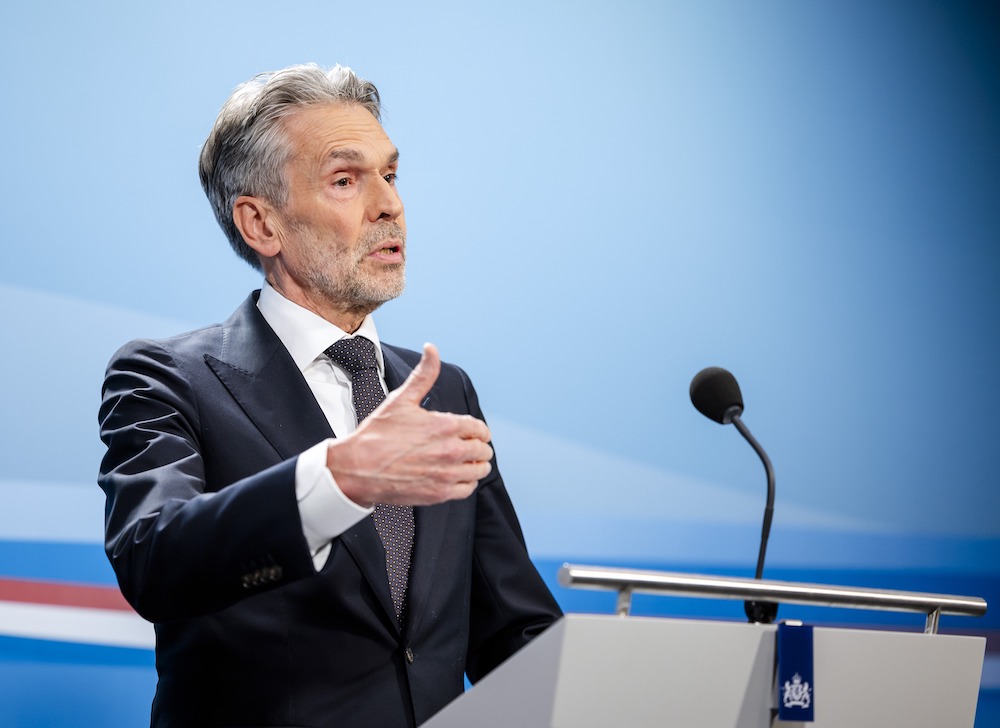Dutch refugee plans: impact difficult to calculate admits Schoof
Robin Pascoe
Prime minister Dick Schoof has defended the right-wing cabinet plans to bring in “the toughest rules for asylum ever”, which include bringing in border controls, sending refugees back to “safe” parts of Syria and making refugees re-apply for the right to stay every three years.
It is “completely logical” that refugees return home if it is safe to go back, unless they have lived in the Netherlands long enough to apply for residency, Schoof said. The cabinet is increasing the residency requirement from five to 10 years and scrapping the five year residency permit for refugees.
The package, thrashed out between the four coalition parties, is supposed to enable the government to “get a grip on asylum” and replaces earlier plans to bring in emergency legislation to bypass parliament.
The prime minister was pressed repeatedly about what the impact of the measures will be on reducing the number of people claiming asylum in the Netherlands but was unable to do so.
This year refugee numbers are likely to be slightly lower than last year, at around 50,000, which is well below earlier government estimates.
“It is a question of wait and see,” Schoof said. “It is difficult to relate the inflow with the measures we are taking… the package will lead to fewer arrivals and more people being sent back.”
Experts have said the impact on numbers is likely to be minimal, and that most of the measures are only relevant to refugees now in the Netherlands. Just a handful of adult children, for example, currently join their parents here.
Syria
Schoof said that foreign ministry civil servants would be asked to assess what parts of Syria it would be safe to send refugees back to, even those who have residency permits. If they conclude it is not safe, they will not be returned, he said.
Legal experts have said that the Netherlands will need to have diplomatic relations with Damascus to make this an option, and does not currently have this.
The prime minister also defended the decision to withdraw legislation requiring all local authorities to take their fair share of refugees, saying this had been agreed in the coalition accord. Earlier this week RTL reported that 84% of local authorities are now either providing accommodation or preparing to do so, compared with just 53% at the start of this year.
Mayors have called on the government not to scrap the legislation, saying that if it goes, the pressure will rise on the few, mainly northern, parts of the country where most refugees are located.
Some 19,000 people are currently living in refugee centres should be in regular housing but the shortage of homes means they are unable to move.
Under the new plans, councils will no longer be required to provide ordinary homes to refugees and the government plans to develop special accommodation for people who have residency permits.
Schoof did not answer questions about what form this would take and said these talks still have to take place. “I have full confidence the asylum and housing ministers will be able to deal with this,” he said.
The Dutch local authorities association VNG said the plans would create “chaos”
Border controls
The package of measures also includes the introduction of border controls which will be in line with those used in Germany and France, Schoof said.
“We have agreed that ‘economic transport’ will be exempt,” he said. “The measure is focused on stopping illegal migration and sending back people who have applied for asylum in another European country.”
Thank you for donating to DutchNews.nl.
We could not provide the Dutch News service, and keep it free of charge, without the generous support of our readers. Your donations allow us to report on issues you tell us matter, and provide you with a summary of the most important Dutch news each day.
Make a donation